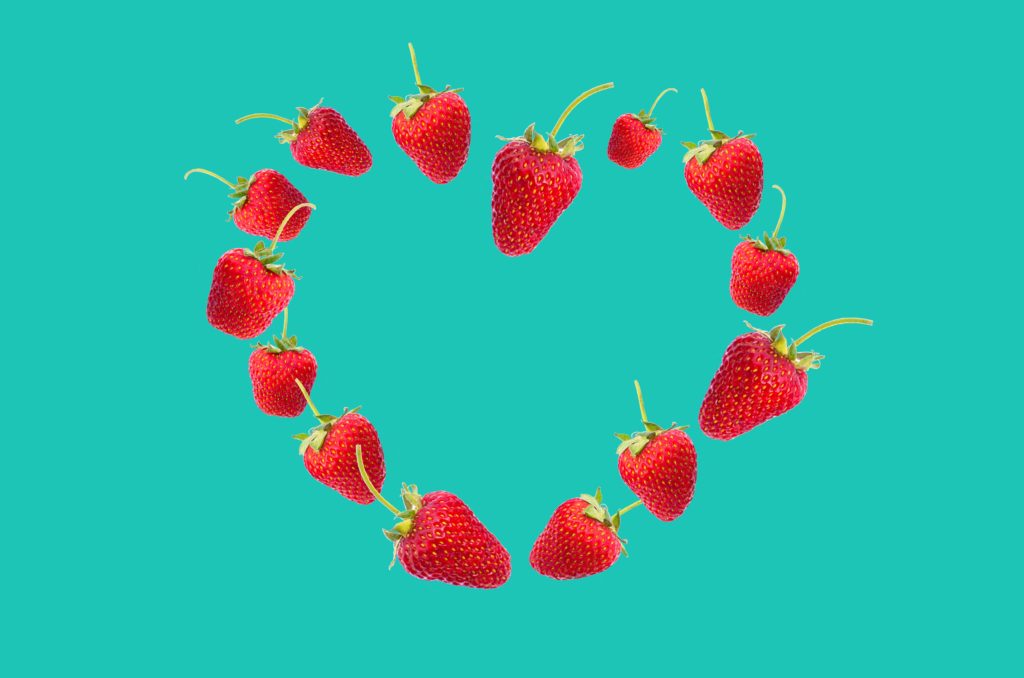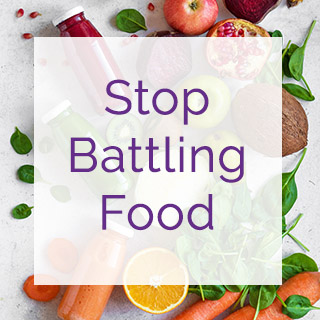
Do You Love What You Eat? Your Answer Can Impact Weight Loss
I believe it’s a coffee commercial that shows a woman holding a precious fresh cup of steaming coffee. Her young kids are running through the house and there is chaos all around her, yet she calmly inhales the aroma of her coffee, takes a slow drink, exhales, and then smiles contentedly.
I’m often reminded of this commercial when I feel my life getting hectic. We’re busy people! It’s easy to approach nourishing our bodies like another task on our To Do Lists, and it doesn’t take much to distract us from the enjoyment of eating (or drinking). However, when we skip the experience of eating then we aren’t really allowing our body to digest and use all of the nutrients we’re providing.
In order to better explain this, let’s step back and look at what happens between your body and brain when you eat.
Digestive Messaging
When you are hungry, your stomach produces a hormone called Ghrelin that sends a signal to your brain to seek out food. At this point a series of messages are sent.
- When you see and smell food your brain remembers what this is. Your mouth starts to water. Your stomach may rumble. Your digestive tract begins to excrete chemicals that will help to digest the food. Scientifically this is called the Cephalic Phase of Digestion. (Cephalic = “of the head”).20-80% of your calorie burning and digestion comes from the Cephalic Phase of Digestion before food even enters your mouth!
- When the food does reach your mouth saliva is released to help digest sugar and carbs. The chewing further increases the acidity of the stomach and the release of digestive juices by the pancreas and gall bladder. All of these ingredients help you digest your food.
- As you swallow your food, the digestive processes in the stomach and intestines break down your food and absorb nutrients into the blood stream to carry throughout your body.
- As the stomach fills up, the hormone ghrelin decreases. Other hormones are then produced to tell your brain you’re full.
In all, it takes 30-60 minutes for the “stop eating” hormones to peak and let the brain know you’re full.
How does this translate to weight gain or weight loss?
When you don’t take the time to fully engage in eating you essentially set your eating experience to fast-forward. Being hungry, seeking food, and eating are part of a complex dialog between our brains and our bodies. When we eat without acknowledging the meal the messages don’t get there timely. This can cause overeating, digestive discomfort, and cravings that lead to unnecessary snacking. All of these can contribute to unintentional weight gain or can prevent you from losing the weight you want.
How To Practice Loving What You Eat
Think of some things in your life that you love – significant other, children, hobby, job, exercise. When you love someone or something you give it your time. You give your attention. You enjoy the moments you spend together and you appreciate all that is being given.
Now imagine if we had this same love for the food that is so important to our bodies. To love what you eat means to:
♥ Appreciate food/drink for what it is. It may be protein to meet your strength goals or vegetables to support your heart. It could also be a cup of tea you’re sharing with a dear friend. How about a piece of chocolate after a tough week? Whatever it is, appreciate the food for the value that it brings to your body and soul.
♥ Enlighten your senses. Appreciate the way your food looks, smells. Taste it with your whole mouth and experience the texture. Remember to chew.
♥ Breathe. Breathe before you eat – easy since you’re going to inhale to smell. Breathe while you eat. This doesn’t require you to put the fork down. Just pause. Breathe when you’re done. Breathing is also a signal to the brain that all is well, and you can relax.
Did you know that the #1 metabolic nutrient is oxygen? Over 95% of what goes into the body needs O2!
Don’t Just Eat What You Love
Keep in mind that this is a two-way relationship. You want to give love to things that will love you back. I love lots of foods and drinks but not all of them love me back. So keep in mind that loving what you eat is not the same as eating what you love.
Pick at least one meal of your day and give it some L♥VE. You may be surprised at how different it makes you feel.
Explore other factors that affect your body’s ability to hit your weight goals. Sign up for our personally guided 4-session program with Stacy St Germain – Stop Battling Food, Weight Loss Done Differently Each appointment guides you through a holistic, whole-body, review to get you on a sustainable journey to weight loss with dietary and lifestyle changes you can live with.
Package value $100 off individually priced sessions
Disclaimer: Nutrition therapy is not intended as a diagnosis, treatment, prescription, or cure for any disease, or as a substitute for medical care. Jen Marshall and Stacy St Germain are not licensed medical providers. Nutrition plans are not intended as a substitution for traditional medical care, nor should be interpreted as medical advice, but instead is an adjunctive and supportive therapy.

